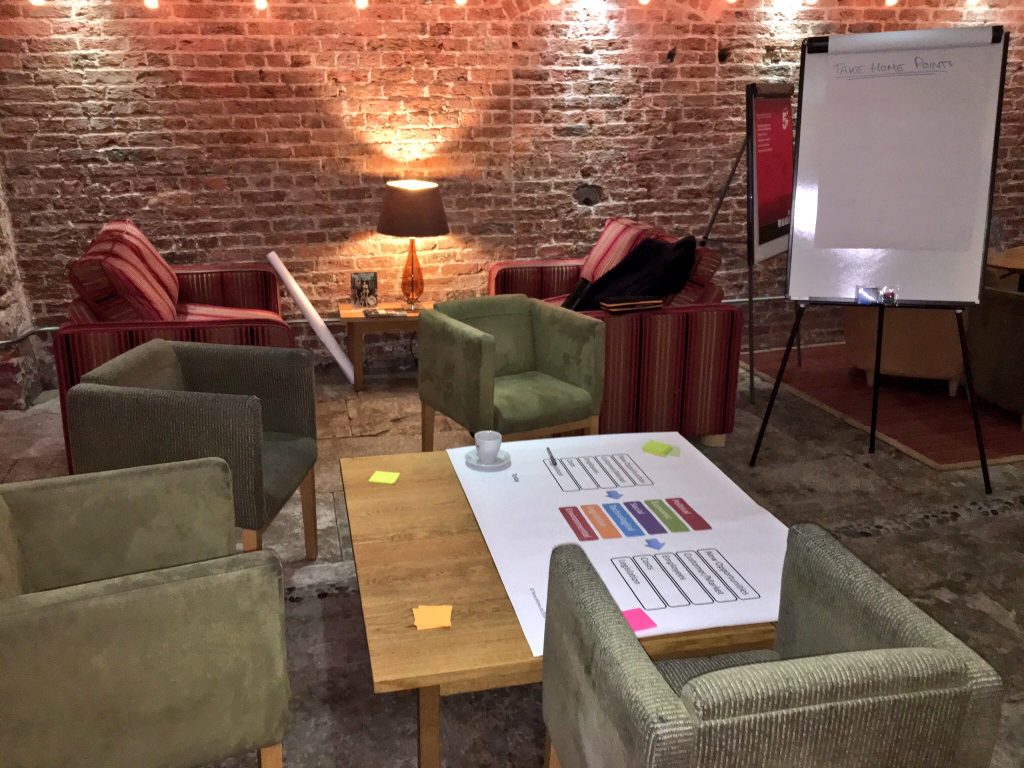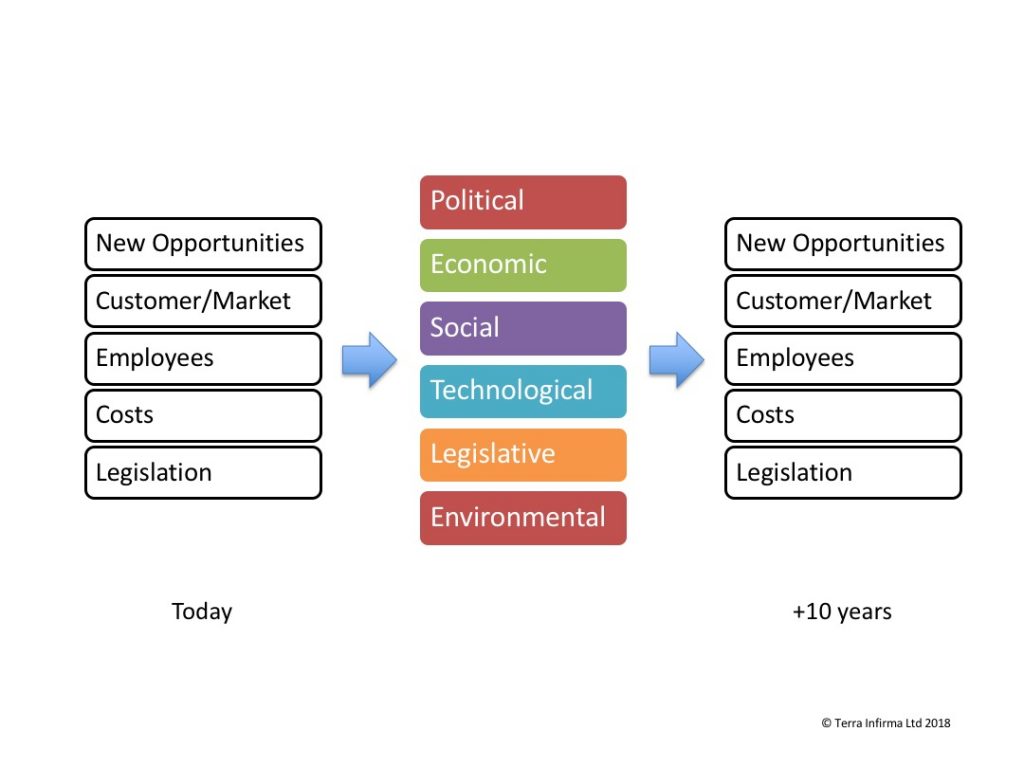Evolving Drivers for Sustainability

I’ve long been a proponent of aligning Sustainability strategies to the business case for Sustainability for a particular organisation. So if the main driver is keeping customers happy, then that requires quite a different approach from, say, a cost conscious business, or one facing quite different national regulation across its markets. In this way, Sustainability augments the business and there is less chance of fatal conflict of interest.
But what happens if drivers change? No matter what a public-facing organisation is doing on carbon, if they neglect the current ‘war on plastic’, the damage to the brand could be severe. That’s the question we were looking at during last week’s Corporate Sustainability Mastermind Group at the Live Theatre in Newcastle.
We used the following template with a PESTLE analysis to stimulate the discussion.

I recorded 36 generic ‘take home points’ during the session, here’s a baker’s dozen for you to ruminate on:
- Increasingly (big ‘S’) Sustainability = business sustainability;
- Stakeholders’ perceptions are as important as dry analytics (eg the current ‘war on plastic’);
- Public perception can change very rapidly (eg the current ‘war on plastic’ triggered by a single TV programme) requiring flexibility;
- The circular economy will require a complete rethink of business models;
- Short-sellers are now analysing sustainability reports for weaknesses to exploit
- Economic development in the ‘third world’ means changes in global trade (eg China’s recent ban on mixed plastic waste imports) and ‘reshoring’ of manufacturing;
- Post-Brexit, self-certification may become more common;
- Automation and sustainability is an interesting interface: less waste, potentially fewer accidents, but less employment.
- Beware ‘paralysis by analysis’ and embrace uncertainties;
- Be prepared to ‘flex’ targets and strategy to meet new stakeholder expectations;
- Design capital projects eg buildings for flexibility as we are in a period of rapid change;
- ‘Frugal innovation’ can help exploit emerging markets sustainably;
- Choosing, say, electric vehicles is not just swapping fuels; need to rethink how those vehicles are operated.
As usual, the conversation leading up to these thoughts and the company specific issues were even more important than the generic points I publish.

